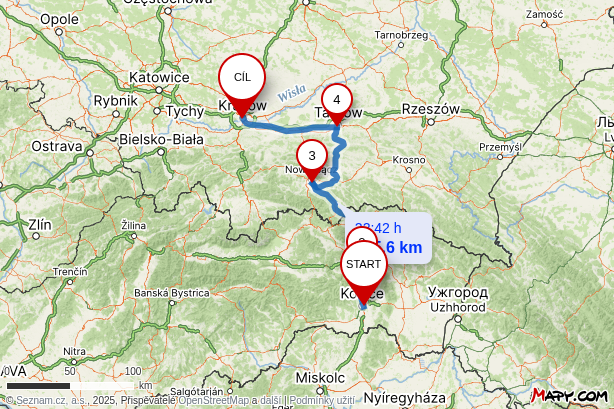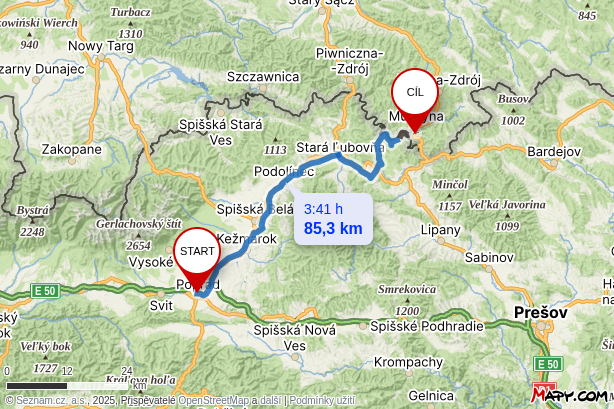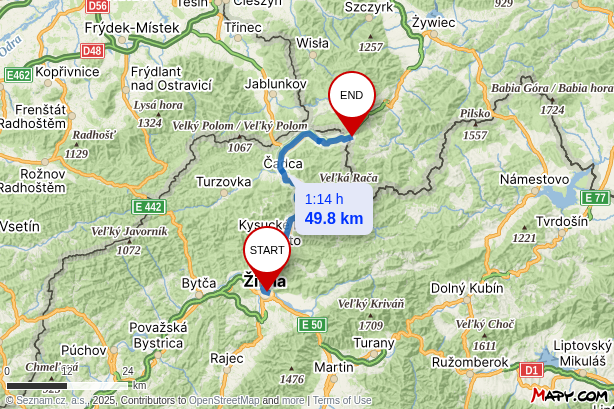For a very long time, civic groups and transport ministries in Slovakia and Hungary have called for the restoration of a cross-border railway link connecting Kraków, Košice and Budapest via eastern Slovakia. But until recently, Polish authorities have consistently rejected the plan.
Despite detailed proposals, agreed timetables and working railway infrastructure, Poland’s Ministry of Infrastructure has repeatedly refused to approve the route. Since 2022, Slovakia’s Transport Ministry has submitted coordinated schedules – including three daily round-trip services – in cooperation with Hungarian rail authorities. The proposed route would run from Budapest via Miskolc (Hungary), Košice and Prešov (eastern Slovakia), cross the Polish border at Muszyna, and continue through Nowy Sącz and Tarnów to Kraków.
Warsaw had long insisted that such a service would only be possible after completing major infrastructure upgrades. “The connection on the Warsaw/Kraków–Muszyna/Budapest line may be launched after the construction of the new Podłęże–Szczyrzyc–Tymbark/Mszana Dolna line and the modernisation of the existing Chabówka–Nowy Sącz line (no. 104),” ministry spokesperson Anna Szumańska said. “Taking into account the current timeline, the new connection would be possible from the 2030/2031 timetable.”
This position has stood in contrast to that of Slovakia and Hungary, which argue that existing infrastructure is sufficient. The line is already used by the Beliansky Express, a seasonal train that runs between Poprad in northern Slovakia and Muszyna in southern Poland. Despite operating on just a few weekends each winter and summer, the service has attracted high ridership.
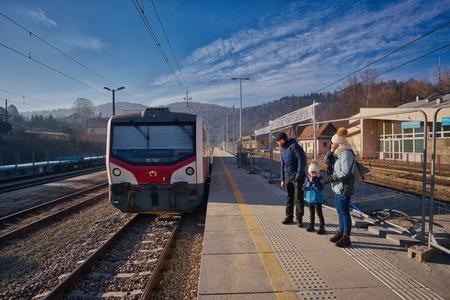
Polish and Slovak campaigners note that regular trains once ran along this corridor. The Tarnovia, which linked Kraków and Košice, was suspended in 2010 after a flood destroyed a bridge near Stary Sącz. Although the bridge was rebuilt within a year, the train was never reinstated. Another long-distance train, the Cracovia, used to run from Kraków to Budapest via Nowy Sącz and Košice – and at one point extended all the way from Warsaw to Bucharest. While ridership declined over time, campaigners argue that the real issue was Poland’s pricing policy, which they describe as uncompetitive and discouraging for passengers.
According to the civic platform Port Europa, the same scenario has played out each year at the Polish–Slovak intergovernmental transport working group: Slovakia proposes year-round Kraków–Košice–Budapest services; Poland declines. For years, Polish officials maintained that no trains should run on the Muszyna–Nowy Sącz stretch until the new Podłęże–Piekiełko corridor is finished. That project – originally due by 2024 – has faced repeated delays, now tentatively pushed back to 2032. Activists argue this amounts to indefinite postponement.
However, there are signs that Poland’s position may be softening. In recent months, Polish officials have expressed cautious openness to launching 2–3 daily Kraków–Košice trains between 2026 and 2028, contingent on upgrades to line no. 96 between Tarnów and Muszyna. Campaigners, though, remain wary – similar promises have been made in the past, only to quietly fade.
Polish transport journalist and rail expert Karol Trammer has described this pattern as “futurewashing” – a way for authorities to avoid providing public transport in the present by deferring it to some indefinite point in the future.
A similar pattern has occurred at the regional level. In 2017–2018, authorities in Małopolska (the region surrounding Kraków) promised cross-border buses every two hours between Zakopane and the Slovak Tatras. The line launched only in 2025 – and runs just twice a day.
Even short-distance regional trains between Poprad, Muszyna and Krynica-Zdrój have suffered from inconsistent service, despite earlier commitments. In 2017, Małopolska’s regional government provisionally backed a plan for daily cross-border trains, but the frequency was never fully implemented. During summer weekends, passengers can transfer in Muszyna to connecting trains towards Krynica and Kraków.
Currently, the Polish–Slovak border is the only one in Slovakia without any regular year-round international passenger rail service. All of Slovakia’s other neighbours – Austria, the Czech Republic, Hungary and Ukraine – are linked by scheduled cross-border trains.
The only direct connection between Slovakia and Poland today runs between Bratislava and Warsaw, but this train detours through the Czech Republic, passing through Kúty, Břeclav, Ostrava and Bohumín. It does not use the more direct route via Trenčín and Žilina. From Žilina, passengers can take a local train to the Polish border village of Zwardoń, but the onward section to Żywiec is currently out of service due to track modernisation.


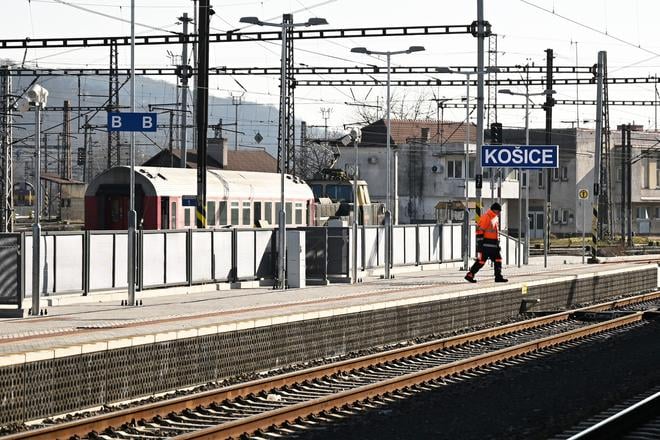 Renovation works at Košice railway station on 10 February 2025. (source: TASR - František Iván)
Renovation works at Košice railway station on 10 February 2025. (source: TASR - František Iván)
